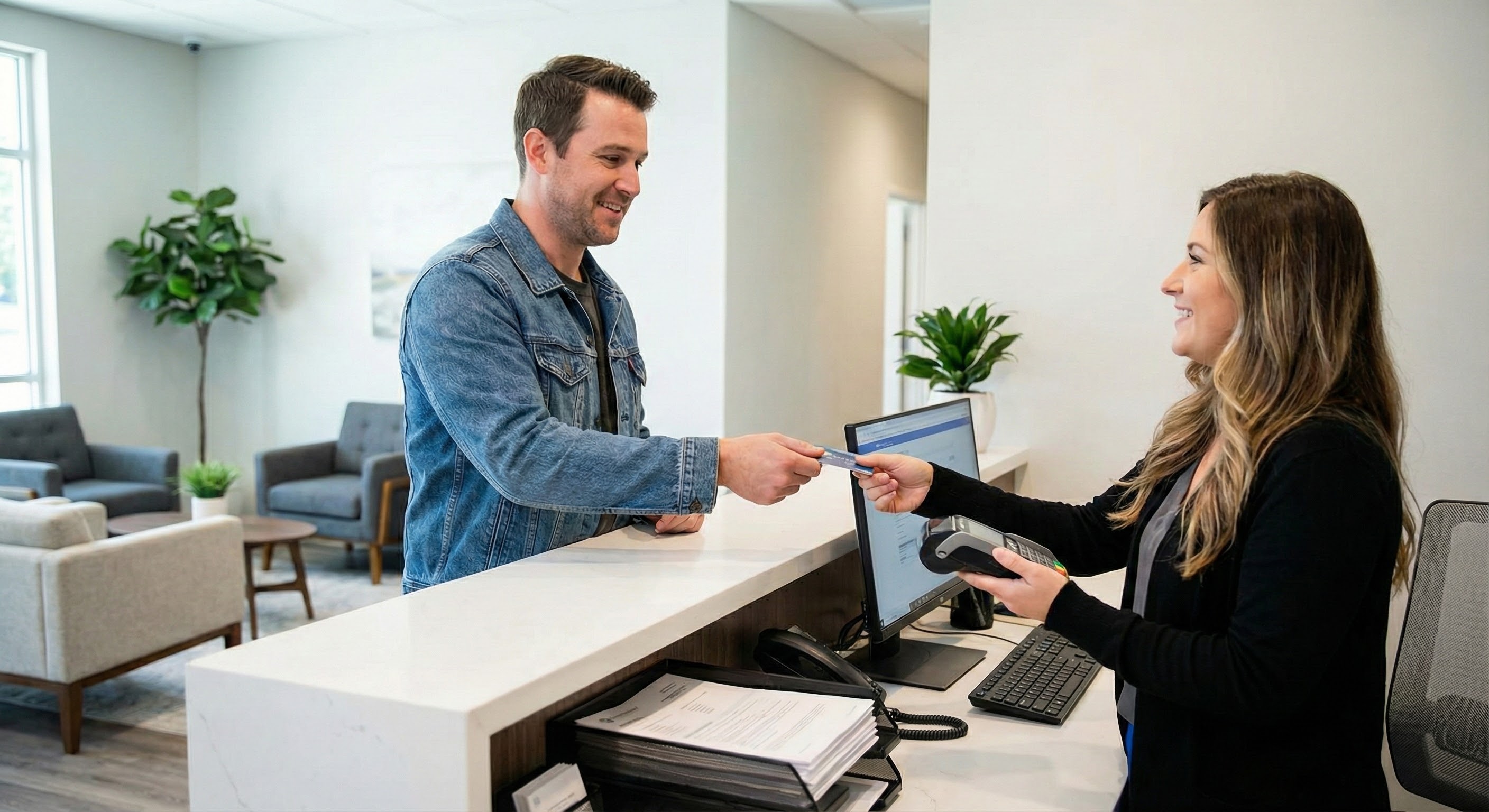What Is Group Therapy?
Group therapy is therapy with a small group of people who meet with a trained therapist. Everyone comes to learn, talk, and practice new skills together. The group is a safe space where you can share your feelings, ask questions, and get support.
Many people join a group because they feel anxiety, fear, or stress that gets in the way of daily life. Some have social anxiety or social anxiety disorder and want to improve social skills like starting conversations, making eye contact, or speaking up in class or at work. In group therapy, you are not alone. You meet others who understand your symptoms and care about your health and mental health.

Why Group Therapy Helps Anxiety
Shared Understanding and Peer Support
When you sit with people who “get it,” you feel seen. This shared understanding builds empathy and peer support. Hearing someone say, “I felt a panic rush in the grocery store, too,” can lower shame and help you breathe easier.
Real-Life Practice in a Safe Space
Anxiety often grows when we avoid hard things. In group, you can try small steps in a safe space. You might practice a short intro, ask a question, or give feedback to a partner. This is learning by doing, and each try builds confidence.
Coaching From a Trained Therapist
A licensed therapist guides the group using psychology and evidence-based care. They may teach therapy for anxiety techniques like exposure therapy, cognitive restructuring, stress management, meditation, progressive muscle relaxation, and guided imagery. You get expert help plus the power of the group.
Who Can Benefit?
-
People with anxiety disorder or social anxiety disorder
-
Anyone who feels social isolation or avoids groups, meetings, or calls
-
Students or workers who want better social speaking skills
-
People who tried medication or individual treatment and want extra support
-
Anyone seeking recovery skills to prevent relapse of anxious patterns
If you are a patient who already meets with a counselor, group can add more practice and support each week.
What Happens in a Typical Group Session?
Check-In (5–10 minutes)
Members share wins and struggles. The therapist listens with attention and notes goals for the day.
Skill Teaching (15–25 minutes)
The therapist teaches a simple skill for management of anxiety, such as:
-
Breathing: slow inhale/exhale to calm the body
-
Progressive muscle relaxation: tense and relax each muscle group
-
Cognitive restructuring: spot a worried thought and replace it with a helpful one
-
Guided imagery: picture a calm place to lower stress
-
Meditation: short mindfulness practice to steady the mind
-
Stress management: plan breaks, sleep, hydration, and exercise
Practice and Feedback (20–30 minutes)
Members practice the skill in pairs or a circle. You might role-play calling a doctor, giving a class update, or asking a boss a question. The group gives kind, clear feedback: what worked, what to try next.
Exposure Steps (10–20 minutes)
With exposure therapy, you face a fear in small steps. Maybe you practice speaking for 30 seconds, then 1 minute. Step by step, your brain learns, “I can handle this.”
Wrap-Up and Home Practice (5 minutes)
You set one small goal for the week, like joining a club meeting or saying hello to a neighbor. Small wins add up.
Therapies You May See in Group
Cognitive Behavioral Therapy (CBT)
CBT teaches how behavior and thoughts affect feelings. You learn cognitive restructuring to shift from “Everyone will judge me” to “Some may notice, but most won’t, and I can cope.”
Dialectical Behavior Therapy (DBT)
Dialectical behavior therapy builds emotion regulation, distress tolerance, and coping skills. In group, DBT skills like “wise mind,” opposite action, and interpersonal effectiveness help you stay steady in tough social moments.
Exposure Therapy
You slowly face feared places or tasks. This changes the brain’s reward and fear systems over time. You gain motivation each time you notice, “That wasn’t as bad as I imagined.”
Mind-Body Skills
-
Meditation and mindful breathing to calm the nervous system
-
Progressive muscle relaxation to release body tension
-
Guided imagery to picture safety and ease
-
Gentle exercise to boost mood and energy
How Group Therapy Builds Social Skills
Communication Basics
You’ll practice greeting, asking open questions, and active listening. Simple steps help lower phobia-like reactions to social contact.
Assertiveness and Boundaries
Learn to say what you need with respect. Scripts and role-plays make it easier to speak up without overthinking.
Reading the Room
You’ll learn to notice tone, pace, and body language. With practice, your attention shifts from self-criticism to the flow of the moment.
Giving and Receiving Feedback
You’ll learn to offer kind, specific feedback (“Your voice was clear when you paused”). You’ll also practice hearing feedback without taking it as a personal attack.
Group vs. Individual Therapy
Both help. Individual therapy gives one-on-one depth and privacy. Group therapy gives real-time social practice, support groups energy, and many viewpoints at once. Many people use both. Some also take medication from a doctor to help with severe depression or high anxiety while building skills in group.
Evidence and Results You Can Expect
-
Lower stress and anxiety in social settings
-
More confidence speaking up in class, work, or community
-
Better coping routines (sleep, movement, meals, breaks)
-
Fewer avoidance habits and stronger motivation
-
Less social isolation and more connection
Over time, many people report fewer symptoms, fewer panic spikes, and better daily management of triggers. Relapses may happen—that’s normal. Group plans for relapse with early warning signs and a step-by-step treatment plan.
Tips to Get the Most From Group
Show Up Weekly
Consistency helps your brain learn faster. Even on hard days, coming in builds strength.
Try One Small Step
Pick one task per session: ask a question, make eye contact, or share a short story. Small steps beat big leaps.
Practice Outside Group
Try your weekly goal in real life. Keep notes on what helped and what was tough.
Use the Group’s Support
Ask for peer support and empathy. Share wins so others learn from you, too.
Combine Skills
Use breathing + cognitive restructuring + a short meditation to prepare for a meeting. Stacking skills keeps anxiety lower.
Common Myths (and the Facts)
Myth: “People will judge me.”
Fact: Groups set rules for kindness and safety. Members focus on growth, not judgment.
Myth: “Talking about anxiety makes it worse.”
Fact: Naming feelings often lowers their power. Then you can pick a skill to help.
Myth: “I must be ‘fixed’ before I join.”
Fact: You come to learn, not to be perfect. The group is for real people, not robots.
What About Medication?
Some people use medication with group therapy. A doctor or psychiatry provider may suggest it if anxiety or depression is severe. Medicine can help while you build skills. For many, the best path is a mix: therapy + lifestyle + medical care as needed.
How to Start
-
Ask your therapist or doctor for group options near you.
-
Check the focus (social anxiety, general anxiety, teens, adults).
-
Confirm schedule and length (often 60–90 minutes weekly).
-
Meet the leader to learn rules, goals, and privacy policy.
-
Attend the first session with one tiny goal, like speaking once.
If you are in or near Murrieta, California, look for local anxiety support groups or outpatient programs that use CBT, DBT, and exposure therapy. Choose licensed providers who follow mental health best practices and explain their plan clearly.
A Simple Starter Plan You Can Use Today
-
Morning (2 minutes): mindful meditation—notice breath in and out.
-
Midday (2 minutes): progressive muscle relaxation—tense/relax shoulders, hands, face.
-
Afternoon (5 minutes): cognitive restructuring—write one worried thought; write one balanced thought.
-
Evening (5 minutes): light exercise—a walk or gentle stretch for stress management.
-
Social step (1 minute): send one message or say hello to one person. Celebrate the win!
Final Takeaway
Yes—group therapy works for anxiety. You learn clear coping tools, practice real social skills, and gain support that keeps you going. With steady effort, you can feel calmer, stronger, and more connected. You are not alone—help is here, and recovery is possible.

Seeking Treatment? We Can Help!
We work with PPO Out of Network Health Insurance Policies
If you or a loved one are struggling with mental health challenges or substance abuse, reach out to Mountain Sky Recovery today. Our team of compassionate professionals is here to support your journey towards lasting well-being. Give us a call at 951-498-5412. Visit SAMHSA for more information.
FAQs
How does group therapy help social anxiety?
Group therapy gives you a safe space to practice social skills and exposure therapy in small steps. You also get peer support, feedback, and coaching from a therapist to build confidence and lower fear.
What if I’m too nervous to speak?
It’s normal to feel scared. You can start small—say your name, then a sentence. The group honors your pace. Over time, learning and practice reduce symptoms and raise motivation.
Do I need medication to join group therapy?
No. Some people use medication with therapy, and some do therapy alone. Talk to a doctor about what fits your health needs. Group skills help either way.
What skills will I learn?
Many groups teach cognitive restructuring, progressive muscle relaxation, guided imagery, meditation, and stress management. You’ll also practice assertive speaking and other behavior skills for daily management.
How long before I feel better?
People often notice small gains in a few weeks—less stress, more attention in conversations, and fewer avoidance habits. Bigger changes grow with steady treatment, home practice, and support to prevent relapse.



